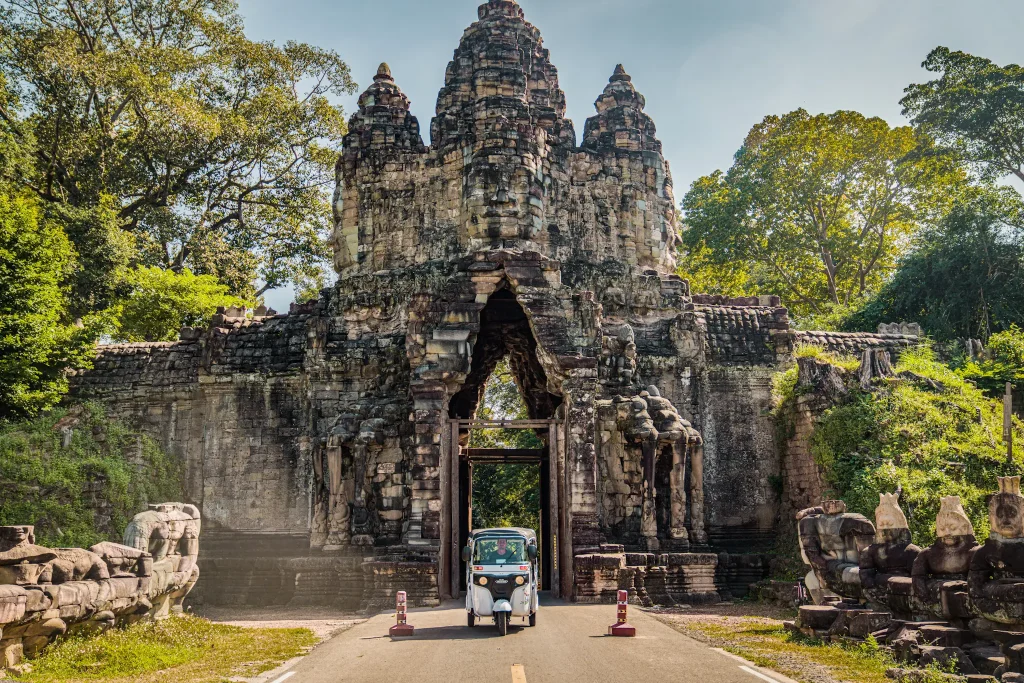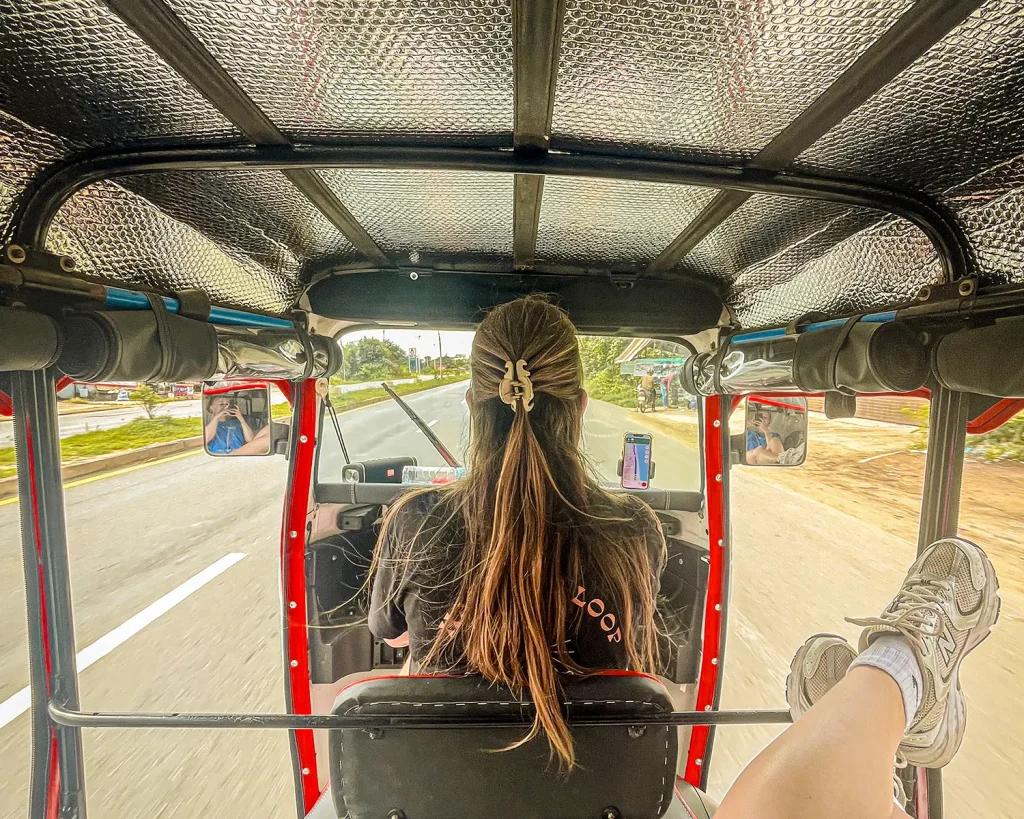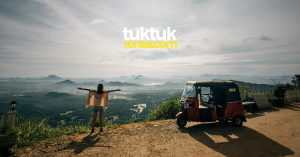Cambodia might surprise you. While it’s a deeply traditional country with strong cultural roots, it’s also one of Southeast Asia’s most open-minded and welcoming destinations, especially for LGBTQIA+ travelers! From the sunrise over Angkor Wat to the sunset parties in Kampot, there’s a sense of freedom here that often catches solo travelers by surprise.
First Impressions: Warm Smiles, Open Hearts
Cambodians are famously kind, curious, and non-confrontational. As an LGBTQIA+ traveler, you’re unlikely to face open discrimination. Most locals simply care that you’re polite and respectful of their customs. You’ll find that people are far more interested in your story than your labels.
That said, open displays of affection (regardless of gender) are generally not part of Cambodian culture. Keeping things low-key in public isn’t about hiding who you are, it’s simply about blending with local norms.
LGBTQIA+-Friendly Spots Around Cambodia
Siem Reap is arguably the most inclusive city in the country. The nightlife scene here is vibrant, with gay-friendly bars likeRendezvous Bar,Barcode, B Ball, and G.O.D. (Gay On Display, with nightly drag shows) welcoming travelers from all walks of life. There’s a friendly, laid-back vibe where locals and expats mingle easily.
Phnom Penh, the capital, has a more urban energy. Check out Blue Chilli, Cambodia’s most iconic gay bar, where drag shows light up the night, or Space Hair Salon & Bar, a quirky mix of cocktails and creativity.
Down south, Kampot and Kep offer a different kind of freedom, peaceful riverside guesthouses, yoga retreats, and creative expat communities where everyone is welcome.
Understanding the Third Gender in Cambodia
In Cambodia, conversations around gender identity go far beyond the traditional male-female binary. The concept of a “third gender” known locally as “khteuy” (ក្ទើយ) has existed in Khmer culture for generations, long before modern LGBTQ+ terminology entered the conversation.
What Does “Third Gender” Mean in Cambodia?
The term khteuy traditionally refers to people who are biologically male but express themselves in a feminine way. Often referred to as “ladyboys” Similar to how some cultures might describe transgender women or effeminate gay men. However, khteuy doesn’t always directly align with Western definitions of gender identity. It’s a broader cultural category that can blend aspects of gender expression, sexual orientation, and societal role.
Historically, Cambodia’s understanding of gender was more fluid than rigid. In ancient Khmer culture and mythology, depictions of gender transformation or dual-gender deities (such as the Hindu god Ardhanarishvara, half male and half female) were not uncommon. This reflects that gender diversity is not new to Cambodian society, it’s just been expressed in different cultural ways.

Is Cambodia Accepting of the Third Gender?
Cambodia is a country of contrasts when it comes to LGBTQIA+ acceptance. On the one hand, there is a growing sense of visibility and tolerance, especially among younger generations, artists, and activists in cities like Phnom Penh and Siem Reap. Same-sex relationships are not criminalized, and the country’s Buddhist philosophy, rooted in compassion and karma, often fosters a “live and let live” attitude.
However, social acceptance doesn’t always translate to full equality. Many third-gender individuals still face stigma, especially in rural areas where traditional values are strong. Employment discrimination, family rejection, and limited legal recognition remain real challenges.
Yet, there’s progress. LGBTQIA+ advocacy groups such as CamASEAN and Rainbow Community Kampuchea (RoCK) have worked hard to create awareness, organize Pride events, and push for legal reforms. Cambodia now celebrates Pride Week each May, with growing participation from locals, travelers, and allies.
Everyday Life for Third Gender People
In daily life, you’ll find third-gender Cambodians thriving in creative industries, beauty salons, entertainment, and hospitality. Many are admired for their talent and authenticity. In urban spaces like Phnom Penh’s riverside or Siem Reap’s Pub Street, gender-diverse people are often embraced by both locals and tourists.
Still, acceptance is often conditional, based on personality, class, or setting. For example, being openly khteuy in a city café might be fine, but in a conservative village or family home, it could lead to judgment or misunderstanding.
A Country in Transition
Cambodia is changing. With social media amplifying diverse voices and younger generations becoming more open-minded, awareness of gender identity and LGBTQIA+ rights is growing fast. The third gender, once spoken of quietly, is now being celebrated in art, fashion, and public conversations. While legal recognition (such as the right to marry or change gender on official documents) has yet to arrive, there’s an undeniable cultural shift happening—a slow but steady journey toward visibility, dignity, and pride.
The concept of the third gender in Cambodia isn’t new, it’s rooted in history, tradition, and the human desire for authenticity. While challenges remain, Cambodia’s open-hearted spirit and cultural resilience continue to pave the way for greater inclusion.
For travelers, this means not only respecting local customs but also celebrating the courage and beauty of those who express their true selves in the Kingdom of Wonder.

Traveling Solo: Freedom on Your Own Terms
Solo travel in Cambodia can be incredibly empowering. You can explore temples at your own pace, hop on a tuk tuk through dusty villages, or drive your own tuk tuk across the countryside (yes, it’s a thing, and it’s awesome). You’ll meet locals who are genuinely kind and curious, and other travelers who quickly become friends.
Stay connected through LGBTQIA+ travel forums or Facebook groups. They’re great for meeting people or getting local tips from expats living here.
Wellness & Connection
If you’re seeking inner balance, Cambodia has a growing wellness scene. From meditation retreats in Siem Reap to eco-yoga centers in Kampot, these spaces are inclusive by nature, focused on authenticity and acceptance.
Understanding Local Attitudes
Cambodia doesn’t have laws against homosexuality, and same-sex relationships are generally tolerated. While same-sex marriage isn’t yet legal, there’s been growing support for LGBTQIA+ rights. Even the late King Norodom Sihanouk once voiced his approval for marriage equality.
What stands out most is the soft acceptance. A quiet live-and-let-live attitude that makes it possible to be yourself without fear.
Tips for a Smooth Journey
- Respect local customs, cover up when visiting temples, and avoid public affection. This is the general rule for everyone, gay or straight.
- Book with LGBTQIA+-friendly accommodations many hotels and eco-lodges openly support inclusion.
- Support local businesses that champion diversity and fair employment.
- Connect with the community Phnom Penh and Siem Reap often host Pride events and LGBTQIA+ film screenings.
Cambodia isn’t a country that shouts about LGBTQIA+ inclusivity, it simply lives it quietly. The warmth of its people, the beauty of its landscapes, and the respect for individuality create a kind of acceptance that feels natural, not forced.
So if you’re an LGBTQIA+ solo traveler seeking adventure, connection, and maybe a little soul-searching…..Cambodia might just be the place where you find all three!



